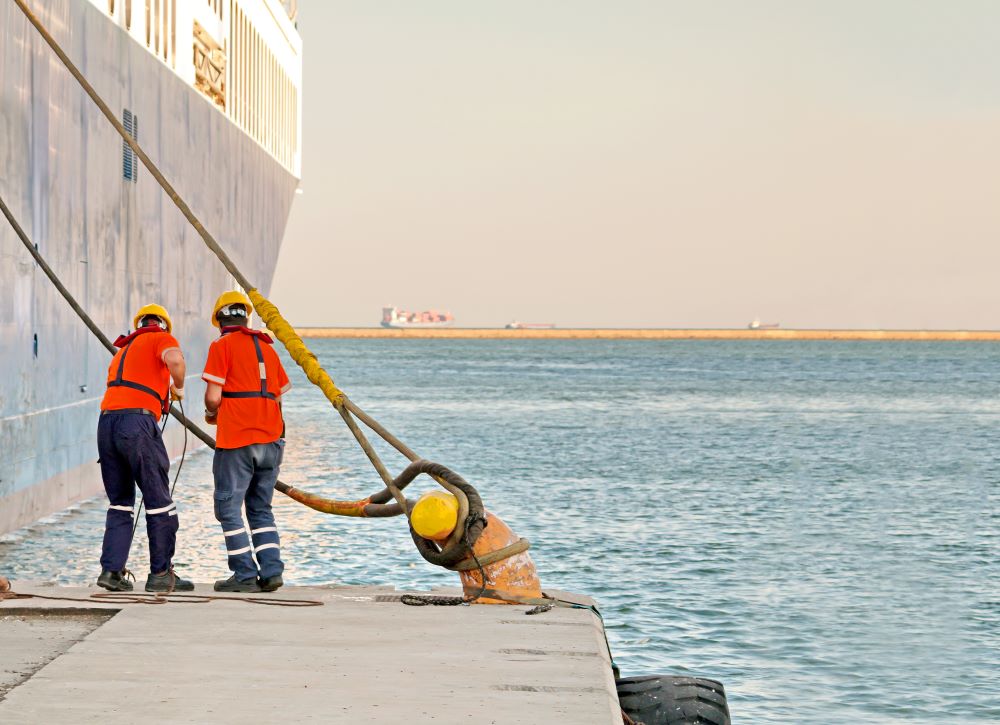
As operators get a handle on capacity issues that have troubled supply chains over the past two years, other issues are still proving problematic.
Shipping rates are continuing to fall after recent record prices and profits, with ocean carriers offering “crazy” rates in the face of a looming recession, despite cutting capacity by up to a third on some routes.
Forwarders are being bombarded with low rates from agents and carriers as they seek out volume, with rates from China into North Europe falling.
According to the Loadstar, Drewry’s WCI recorded a 14% decline, to $2,687 per 40ft, for North Europe, but forwarders are being offered rates of
$1,800 as carriers “panic”.
Daily ocean container departures from China are down by 22% year-on-year, according to data in FreightWaves SONAR Container Atlas, despite a recovery
for Chinese Golden Week in October.
Weak demand globally and continued lockdowns in China have affected economic activity.
Cancelled sailings have slowed, but have not stopped the drop in rates, which will continue to dip next year before a recovery in 2024, reports Tradewinds.
Problems airside
Weaker volumes and higher capacity will also result in overcapacity in air cargo next year, according to data analyst Xeneta.
Lower ocean costs and better reliability as port congestion decreases and capacity improves may tempt some shippers to swap modes, said Judah Levine, head of research at Freightos.
“Shippers who opted for air last year to avoid ocean delays have now shifted back to ocean as container rates and transit times fall,” he said.
Supply Chain Dive reports that air freight demand fell for the eighth consecutive month in October, with volumes down 8% on the year in October. Spot rates
fell 20% in October, but are still 94% higher than in 2019.
Freightwaves reports cargo volumes at Cathay Pacific in October continued to contract due to China Covid policies and a failure of the traditional autumn
surge in activity ahead of the holidays.
Cathay has dropped to ninth largest freight carrier this year and reported that revenue-ton kilometres decreased 25% year-on-year and were down 36.2% compared with October 2019.
Environmental awareness could also push shippers to switch general
cargo from air to ocean.
Ship emissions
Shipping lines say they will pass on the extra costs of compliance with the forthcoming EU Emissions Trading System (ETS), reports the Loadstar.
Maersk Line and MSC have said they would pass on the full cost to customers, estimating this at €90 per tonne of CO2.
The scheme, which comes into force for shipping at the beginning of 2024, has led some of northern Europe’s largest shipping trade associations to call for the scheme to reflect full-lifecycle emissions, rather than combustion emissions alone, reports Argus Media.
The signatories of an open letter to the European Parliament, European Council and European Commission, claimed that the current proposals limit the incentive to use Renewable Fuels of Non-Biological Origin (RFNBOs), such as e-methanol or e-ammonia, that
could help the shipping industry reach net zero by 2050.
With UN International Maritime Organisation regulations targeting carbon emissions weeks away from being enforced, shipping companies could find workarounds, rather than make meaningful progress, reports the FT.
Executives in the sector have highlighted various weaknesses in the rules that could be exploited, such as reducing the carbon intensity of individual ships by distributing cargo across a larger number of vessels.
Simon Christopher Bergulf, regulatory affairs director at Maersk, said weak enforcement could also limit the impact of the measures.
Maersk test case
Meanwhile, in the US, Maersk is facing a test case under legislation giving new powers to the Federal Maritime Commission (FMC) to protect US exporters and importers.
It is accused by former customer OJ Commerce (OJC) of failing to meet contractual obligations, collusion and retaliation, reports the Loadstar.
According to Splash 247, furniture company OJC claims Maersk failed to honour its contract, and when it complained the carrier cut the company off leaving OJC to navigate
the hugely expensive spot market.
Off the rails
US rail could grind to a halt next month after attempts to resolve an industrial dispute foundered, reports the Guardian.
One of the biggest rail unions rejected a deal last Monday (21 November), joining three others that have failed to approve contracts over concerns about schedules and paid sick leave.
According to Reuters, railroads have slashed labour and other costs to bolster profits and are fiercely opposed to adding paid sick time
that would require them to hire more staff.
A strike could start as soon as 5 December crippling supply chains in the US where rail accounts for about 40% of freight.



